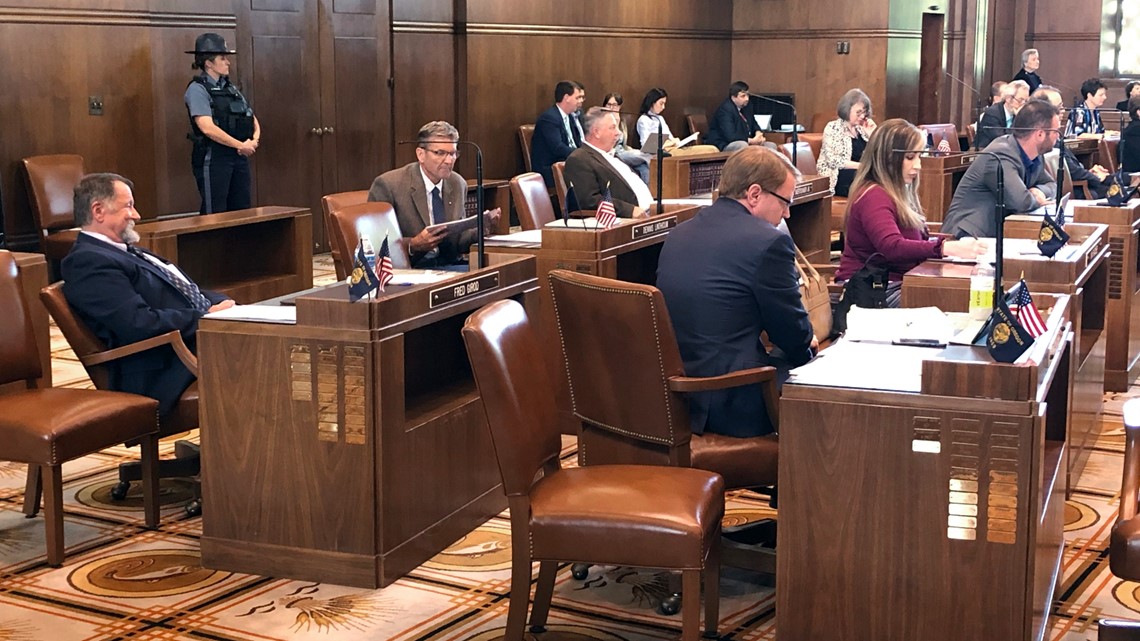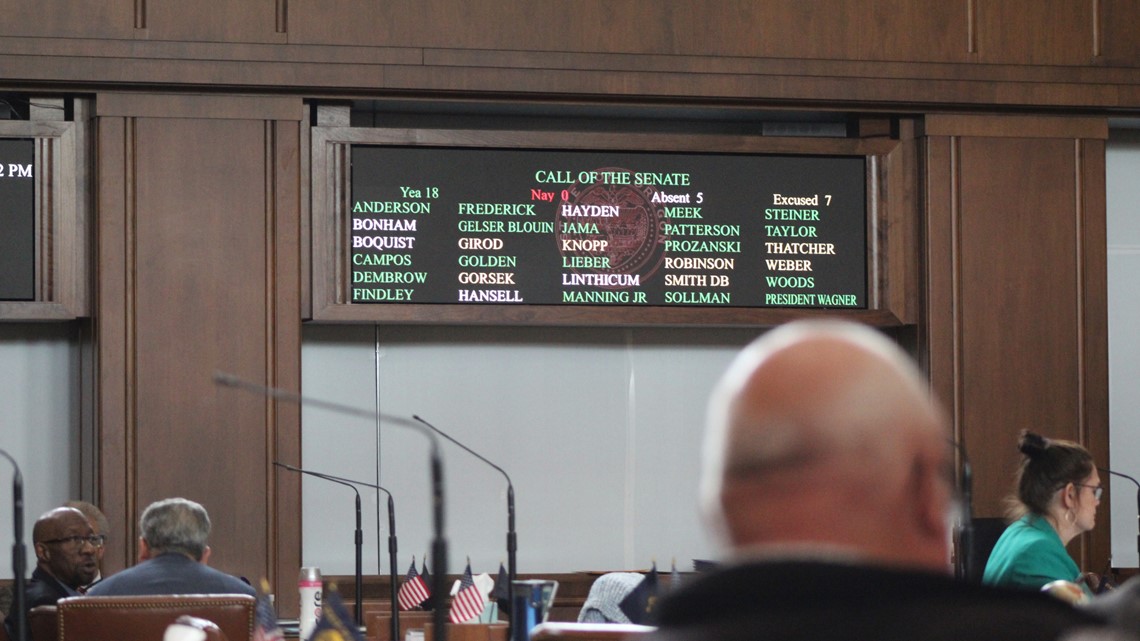Is the future of Connecticut's utilities truly secure, or is it being shaped by a series of political maneuvers? The recent confirmation of Marissa Gillett to a second term as Chair of the Public Utilities Regulatory Authority (PURA) highlights a complex web of partisan tensions, alleged deals, and differing visions for the state's energy future.
The Connecticut Senate, on a Tuesday marked by deep division, ultimately confirmed Marissa Gillett's reappointment. The vote, however, was far from a straightforward endorsement. A walkout by Republican senators, cries of "foul play," and accusations of a "blatant quid pro quo" painted a picture of a confirmation process fraught with political maneuvering. This confirmation comes at a critical juncture for Connecticut, as the state navigates the challenges of energy costs, environmental sustainability, and consumer protection.
| Attribute | Details |
|---|---|
| Full Name | Marissa Gillett |
| Current Position | Chair of the Public Utilities Regulatory Authority (PURA) |
| Previous Experience | Details of previous roles and organizations |
| Education | Details of education and qualifications |
| Key Achievements | Rate reductions overseen by Gillett, etc. |
| Political Affiliation | Information on political leaning. |
| Controversies | Specific issues that have caused tensions or criticism. |
| Relevant Links | PURA Official Website |
The backdrop to this confirmation is a complex landscape of competing interests and political strategies. The Senate Republicans, vocal in their opposition, called for a pause in the confirmation vote, citing a need to thoroughly examine the process. Their concerns centered around a deal, allegedly struck to secure Gilletts advancement through a key legislative panel two months prior. This agreement purportedly involved the appointment of State Senator Holly Cheeseman to the powerful PURA board, a move that drew strong criticism from the GOP. The Republicans' discontent, underscored by their walkout during the final vote, suggests a deep-seated distrust in the process and a belief that the confirmation was the result of political horse-trading.
- The Age Gap Between Hugh Jackman And Deborralee Furness A Deeper Look
- Unveiling The Net Worth Of Renowned Actor Josh Lucas
Conversely, Democrats rallied behind Gillett, portraying her as a champion for lower utility rates and a key figure in protecting Connecticut consumers. Supporters highlighted her leadership and the positive impact of her work, particularly rate reductions she has overseen. This divergence in viewpoints highlights the highly polarized nature of the debate, with each side presenting a dramatically different narrative of the situation.
The vote itself was a study in contrasts. With Republican senators absent from the chamber, the senate voted unanimously to confirm Gillett. This outcome, while securing her position, underscored the depth of the political divisions at play. The absence of the opposition not only streamlined the process but also served as a symbolic gesture of protest.
The timing of this confirmation is also significant. The state is actively grappling with critical energy-related issues, including the transition to cleaner energy sources, the rising cost of utilities, and the need for robust consumer protections. These challenges require effective leadership and a clear vision for the future. The confirmation of Gillett provides continuity in a leadership role, but also raises questions about the direction and priorities of the PURA in the years to come. Moreover, the situation regarding consumer protection raises further questions, with Senate Democrats rolling out bills aimed at safeguarding the public's health.
- Al Rokers Weight And Height A Comprehensive Look
- July 11 Zodiac Sign Traits Compatibility And Astrological Insights
The confirmation process also brought attention to the broader political dynamics within Connecticut. The allegations of quid pro quo and the partisan divide illustrate the complexities of governance and the potential for political interests to overshadow the public good. This is especially true given the fact that a bill has been introduced that targets Fonfaras PURA seat.
The context of the confirmation includes the broader policy debates shaping the state's future. The recent discussion about a soda tax, aimed at supporting free school meals, further underscores the complex trade-offs policymakers face. The decision reflects the need for fiscal responsibility and the prioritization of various social programs.
The process has not been without other challenges. For instance, the Connecticut Mirror, April 15, 2025, published an article, which highlights the complexities of the debate. The publication of news by Katherine Revello, on April 15, 2025, further underscores the importance of this confirmation. The issue has certainly seen various angles, which are being taken to view it.
The Senate's vote is not the final word. With the House already having confirmed Gillett by a significant margin (91-52), her nomination now goes to the governor, completing the process. This multi-stage process highlights the checks and balances in the state's government but also illustrates the complexities of political appointments.
The confirmation of Marissa Gillett as Chair of PURA is more than just a routine administrative action; it reflects a broader set of considerations. The state, having confirmed her, is now ready to address many energy and economic challenges in the future. Moreover, it serves as a test of the state's ability to navigate complex issues, balance competing interests, and prioritize the long-term well-being of its residents. The events surrounding this confirmation will be watched closely as the state continues to make important decisions about its energy future, consumer protections, and the role of government in a rapidly changing world.
The implications of Gillett's confirmation extend beyond the immediate future. The actions and decisions she makes during her second term will have a lasting impact on the state's energy landscape, the cost of utilities for consumers, and the pace of the transition to a cleaner energy future. The scrutiny of her role and the debates surrounding her confirmation underscore the high stakes involved and the importance of accountability in public service.
The political fallout from the confirmation is likely to continue, with the Republicans likely to continue to scrutinize PURA's actions and potentially challenge some of its decisions. The Democrats, on the other hand, will likely continue to support Gillett and defend her leadership, creating a dynamic that will shape the state's energy policy for years to come. This is particularly true given the potential for further legislative action, including bills that seek to reshape the structure and powers of the PURA.
In summary, the confirmation of Marissa Gillett is a pivotal moment in Connecticut's political and energy landscape. The controversies, the partisan divisions, and the policy implications underscore the complexity of governance and the challenges of balancing competing interests. As the state navigates its energy transition, the actions taken by PURA under Gillett's leadership will be crucial in determining the success of Connecticut's efforts to achieve a sustainable, affordable, and equitable energy future.
- Jonathan Stoddard A Look Into His Wife And Personal Life
- Harrison Fords Alluring Eyes Unveiling Their Enchanting Color

